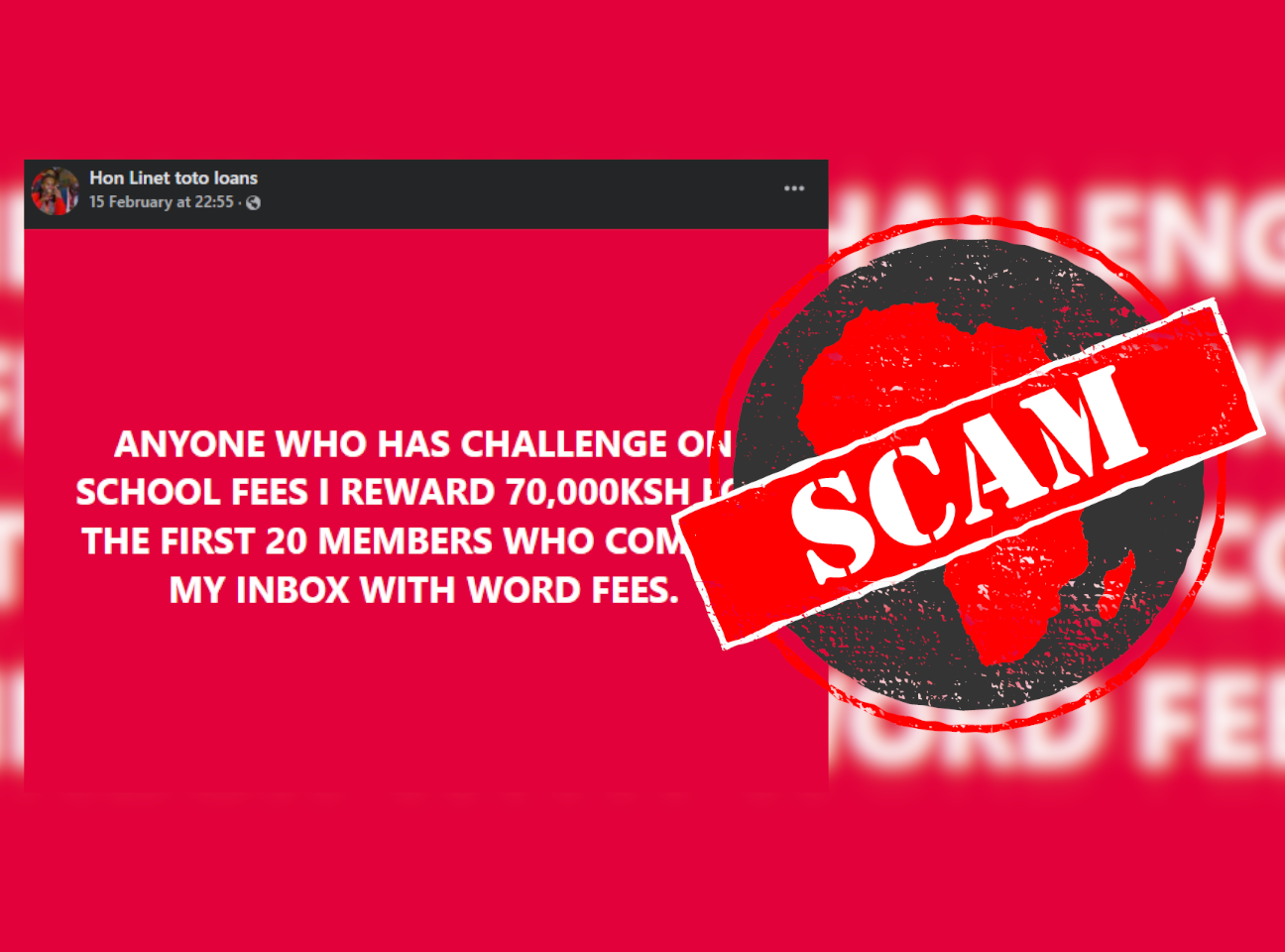IN SHORT: A Facebook account is offering loans using the name of Linet Chepkorir, the youngest county woman representative yet in Kenya. But beware, it is an imposter account.
The Facebook account Hon Linet toto loans is offering loans to Kenyans on Facebook.
The account uses the name and photos of Linet Chepkorir, the youngest county woman representative yet in Kenya.
It claims to give users thousands of Kenyan shillings in loans for school fees, personal use, business, emergencies and agriculture.
One of its posts, dated 15 February 2024, reads: “ANYONE WHO HAS CHALLENGE ON SCHOOL FEES I REWARD 70,000KSH FOR THE FIRST 20 MEMBERS WHO COME TO MY INBOX WITH WORD FEES.”
The account has posted the loan offers here, here, here and here.
But is the account and the offers legit? We checked.

Imposter account
The first sign that the Facebook account is fake is the presence of glaring grammatical errors in its posts. A Kenyan lawmaker would probably invest in a professional social media management team or at least have a staff member responsible for their public statements.
It is also unlikely that a lawmaker would create a social media account for the sole purpose of lending money to thousands of strangers on Facebook every day. This could raise questions about where she gets the money.
Chepkorir’s official Facebook page is Chepkorir Linet Toto and has 68,000 followers. It features posts about her daily engagements and whereabouts.
There are no loan offers on her page.
The Facebook account in question is fake and should be ignored.
Republish our content for free
For publishers: what to do if your post is rated false
A fact-checker has rated your Facebook or Instagram post as “false”, “altered”, “partly false” or “missing context”. This could have serious consequences. What do you do?
Click on our guide for the steps you should follow.
Publishers guideAfrica Check teams up with Facebook
Africa Check is a partner in Meta's third-party fact-checking programme to help stop the spread of false information on social media.
The content we rate as “false” will be downgraded on Facebook and Instagram. This means fewer people will see it.
You can also help identify false information on Facebook. This guide explains how.




Add new comment